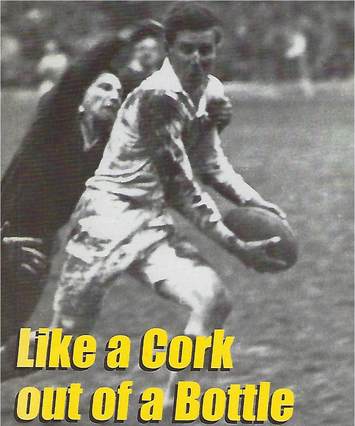In the first paragraph of his novel Martin Chuzzlewit, Charles Dickens underlines the self-importance of the Chuzzlewit family and their 'immense superiority to the rest of mankind'. He describes the family as 'jealous, stony-hearted, distrustful', saying that they were 'all shut up in themselves' and that they had 'no faith in anybody'. They disliked each other mainly, he says, because they belonged to the same family, and they disliked everyone else because they did not!
Martin Chuzzlewit in his twenties was as selfish as the rest. He has a feud with his grandfather and goes off to Africa, taking with him a sort of valet, Mark Tapley, a delightful, unusual person. The result of Tapley's influence is that Martin begins to face his own selfishness. He saw that his life was 'self, self, self' and determined to root it out. On their return, Martin goes to his grandfather and says these remarkable words:
Upon that subject which first occasioned a division between us, my mind and heart are incapable of change. But that I might have trusted to your love, if I had thrown myself upon it: that I might have won you over with ease if I had been more yielding and considerate: that I should have best remembered myself in forgetting myself and recollecting you: reflections, solitude, and misery have taught me. I came resolved to say this and ask your forgiveness: not so much in hope for the future but in regret for the past.
This surely must be one of the great apologies of literature. His grandfather is astonished, but only responds slowly. In fact it is only after some time that he responds totally. 'The curse of our house,' he says, 'has been the love of self.'
The old man changes, and becomes unrecognisable.
F B Meyer, in his book Christ in Isaiah, begins with these lines of A E Hamilton:
Ask God to give thee skill in comfort's art:
That thou mayest consecrated be and set apart
Into a life of sympathy.
For heavy is the weight of ill in every heart:
And comforters are needed much of Christlike touch.
Meyer says: 'To bind up a broken heart requires a delicacy of touch which is a divine art.'
He quotes Isaiah, in chapter 43, 'Thou hast brought me no sweet cane,' and comments: 'It is possible to do right things from a hard sense of legalism in which the sweetness and lovableness of true religion are painfully wanting. How often we do things because we must and because we will, united to the law instead of to God whose service is perfect freedom.'
In helping people we may need salt and sweetness. Salt brings the flavour out of food and people.
Sometimes I make a list in my mind of all the people through my life who have given me encouragement or spur, starting with my father. It is a long list and I keep adding to it, suddenly remembering old incidents or conversations.
Encouraging people in the battle of life, even helping them to choose God's road, is not a technique. It is an art built round a love and vision for people.
In his introduction to Martin Chuzzlewit the editor says: 'Dickens had never shown the imaginative insight in which he now sent his humour and his art into the core of the vices of his time.'
Humour and art.
Helping people requires the lightest of touches. Heaviness can easily discourage or crush.
Dr Charis Waddy - from Australia, Jerusalem and Oxford - has been a lifelong friend. I first saw her father's name on the wall of the Oxford cricket pavilion, in the sides of 1896 and 1897! In her very topical book, The Muslim Mind, she quotes Dr Fadhil Jamali, former Prime Minister of Iraq, who was primarily a teacher throughout his life. He says: 'To bring out man's essential humanity is the aim of education. Intelligence and conscience are the pinnacle of evolution. Faith, profound and sincere, is the highest aim of the educator.'
Dr Waddy quotes the great Sufi philosopher Abu Hamid Al Ghazali, who was at the height of his power and fame round 1100 AD: 'The way of the Sufis lies in overcoming the appetites of the flesh and getting rid of its evil dispositions, so that the heart may be cleaned of all but God.'
God and greatness are waiting to be drawn out of everyone. People can be released from the life of self to enable this to happen. We can act in the certainty that there is a divine spark in everyone waiting to be lit. Of course in multitudes of people it has already been lit. But the winds of the world can blow candles out very easily, and our friendships may be able to keep some candles burning. And in the words of Dante, 'a great flame follows a little spark.'
Isaiah says in chapter 50: 'The Lord has given me the tongue of a teacher and skill to know how to speak a word in season to him that is weary: he wakes me morning by morning to hear, to listen like a disciple.'
Skill - in season - morning by morning - listen. We can learn from God how to talk to people and when to be silent.
One of our church collects addresses the Lord as follows: 'Look with compassion on the anguish of the world and by Your healing power make whole both men and nations.'
In today's dangerous world, we can choose to help that process.


